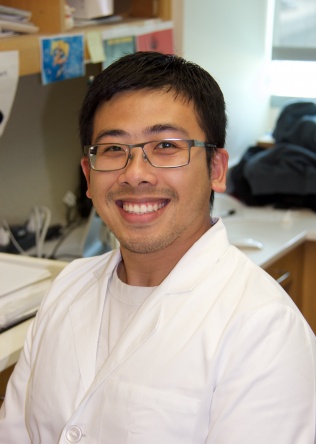Recommended Reading - July 5th, 2020
Spotlight: Denison Lab
Faculty Spotlight: Wonder Puryear Drake, M.D.
Megan Behringer, PhD
Dr. Megan Behringer is a biologist in the Department of Biological Sciences and an Associate Director of the Vanderbilt Microbiome Initiative. Her laboratory employs experimental evolution combined with genomic analysis to study how environmental factors affect the creation of genetic variation (i.e. mutation) and influence how microbes adapt and diversify in novel complex environments. Among other environmental factors, these changes may be influenced by nutrient availability or limitation, spatial homogenization or structure, and the presence or absence of community members. Her laboratory also applies these concepts to pathogen/microbiome interactions, investigating eco-evolutionary feedbacks between disease-causing and disease-preventing organisms.
Publications on 
Microbiology, Genomics, Evolution, Population Genetics, Bacterial Genetics, Microbiome, Urinary Tract, Stress resistance, Mutation
Janet Markle, PhD
The Markle Lab is interested in understanding genetic determinants of immunity. Our studies are patient-based, and we focus on children with severe immune-mediated diseases. Our lab uses human whole exome and whole genome sequencing to discover monogenic (e.g. single gene) inborn errors of immunity in children with rare infectious, autoimmune, or auto-inflammatory diseases. We use a customized bioinformatic pipeline to sift through large genetic datasets to pinpoint candidate gene variants. Then, we study the impact of these variants on the expression and function of the encoded proteins. We aim to thoroughly characterize the functional impact of each variant at the molecular and cellular levels, and to this end we use both classical and cutting-edge techniques in molecular biology, protein biochemistry, in vitro cell culture approaches, and mass cytometry using patient leukocytes. Current projects include: inflammasome-activating mutations, mutations affecting cytokine receptors, novel candidate genes for intestinal inflammation, and characterizing the microbiota of patients with monogenic immune diseases. Our group uses both ‘dry-lab’ (computational) and wide variety of ‘wet-lab’ approaches and our interests lie at the crossroads of human genetics, human immunology, and host-microbe interactions.
Publications on 
Human immunology, genetics, T cells, innate immunity, flow and mass cytometry, host-microbe interactions, microbiome, bioinformatics
Ruben Martinez Barricarte, PhD
Inborn errors of immunity (IEIs) are a heterogeneous group of monogenic diseases that cause impaired development or function of the immune system. Historically, IEIs were considered diseases that lead to susceptibility to severe infections. David Vetter (aka the bubble boy), the most mediatic case of these diseases, was born with an IEI that causes the absence of T and NK cells and, consequently, susceptibility to multiple severe infections. Interestingly, in the past few years, the clinical spectrum of patients with IEIs has expanded to encompass other clinical manifestations such as autoimmunity, allergy, autoinflammation, or cancer. Nowadays, there are about 500 known genetic causes of IEIs, and their study is instrumental in providing a genetic diagnosis for patients, counseling for families, and applying preventive treatments for individuals at risk. Furthermore, these patients, often “knockouts” of specific molecules, provide a unique opportunity to understand the mechanisms of human immunity without relying on artificial models. However, despite all the advances in the field, about half of the patients with a suspected IEI of immunity lack a genetic diagnosis, and in a sizeable fraction of patients with genetically diagnosed IEIs, the pathological molecular mechanisms of the mutations remain elusive. Furthermore, despite compelling evidence that a single gene mutation can cause severe infections by a specific pathogen, most infectious diseases have not been studied as IEIs. Through an international network of collaborators, our lab recruits and studies patients with IEIs of unknown genetic etiology, patients with genetically defined IEIs of unknown molecular mechanism, and patients with selective susceptibility to specific infectious agents. Using next-generation sequencing, we identify new genetic causes of IEIs. Furthermore, employing a multidisciplinary approach combining molecular biology, biochemistry, human immunology, computational biology, and multi-omics, we functionally characterize the mutations responsible for the diseases in our patients. Finally, our lab leverages the basic molecular, immunological and biological insights from studying these patients to develop new immunomodulatory approaches for common diseases like cancer.
Publications on 
Human immunology, human genetics, infectious diseases, molecular biology, primary immunodeficiencies (PID), immunogenetics
Romney M. Humphries, Ph.D., D(ABMM), M(ASCP)
Antimicrobial resistance (AMR) is one of the most pressing concerns in infectious diseases, if not all of medicine. A major dilemma in this scenario is the technologies relied to detect AMR infections are based on methods developed a century ago. More accurate and rapid methods are needed to curtail the spread of AMR and also improve patient outcomes. The Humphries laboratory evaluates methods that improve the speed and accuracy of identifying antibiotic-resistant bacteria infecting patients along with the impact such improved technologies may have on patient care. Additionally, our laboratory investigates novel AMR mechanisms in clinical bacterial isolates as they evolve in real time, and novel antimicrobials designed to treat these infections.
Publications on 
Antimicrobial resistance, Bacterial pathogenesis, Diagnostic testing, Clinical microbiology
Recommended Reading - June 7th, 2020
Wenhan Zhu, PhD
In our lab, we focus on the metabolic interactions that dictate the changes or resilience of the microbiota. Insight into such interactions would enable precise manipulation of gut microbiota composition, thus restoring a balanced community in situ and improving host health. To precisely manipulate the microbiota, we use a multidisciplinary discovery pipeline that consists of next-generation sequencing, bacterial genetics and a mechanistic understanding of bacterial physiology in vivo. This pipeline allows us to discover druggable targets of the microbiota and translate our finding using high-throughput screening.
Publications on 
Resilience mechanism of gut commensals, metabolic targeting of gut microbes to promote commensal resilience, and the roles of bacterial toxin in promoting colorectal cancer development









